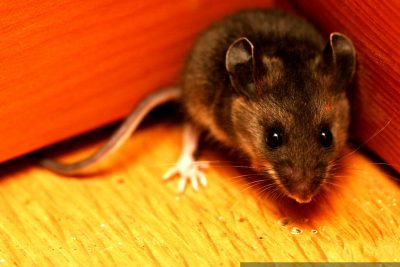
Several Boston University students have recently reported the animals or animal droppings within their on-campus residences.
Mice, cockroaches and birds have been spotted in dorms across campus from South Campus apartments to COVID-19 isolation housing on Fenway Campus. These pests can wreak havoc in the property’s structural integrity and can even be health hazards, so it is advised to contact a pest control company Chesapeake as soon as signs of pest infestations are discovered.
Nick Jasie, a freshman in the Questrom School of Business, entered his isolation housing room last week to find it covered in bird droppings.
“At first I thought it was just on the bed, and then I realized it was everywhere,” Jasie said. “I just kind of panicked.”
Jasie said he first called the person who brought him to isolation housing but was told they were unsure what to do about the situation. He then “freaked out,” called the Residence Life office, which was closed at the time, and then BU Facilities Management and Operations, he said.
Jasie said he was moved to a new room about an hour later. He said he thought BU Facilities came relatively quickly, and likely “as fast as possible.”
Carlee Campuzano, a senior in the College of Communication, said she had a mice problem in her South Campus apartment last fall.
“It started once the weather was getting colder in the fall,” she said. “At first we thought it was just one mouse, but then we realized it was a whole family of mice.”
Campuzano said though they didn’t leave food out, the mice were “helping themselves” to stored food and persistently returned even when they took measures to stop them.
However, she said BU Facilities was quick to respond to the problem.
“They were very responsive,” Campuzano said. “I think they’re used to this problem so they really knew what to do.”
Campuzano said when Facilities workers arrived they found holes in the walls “all over” the apartment and set up traditional wooden mice traps in front of them.
However, Campuzano said these basic traps did not resolve the problem, so she and her roommates purchased more advanced types of traps. Around February, the mice stopped coming back.
“We had a lot of traps out,” she said, “I think that plus the weather getting warmer and the precautions we were taking, the mice stopped coming back pretty much.”
Campuzano said the worst part of the whole experience was being afraid to enter her kitchen at night when she could hear the mice eating.
“He was in there every night snacking,” she said. “He got a full meal from us.”
Marshall Brown, a freshman in COM, said he found a dead cockroach under the heater in his dorm room as he was packing to move out for the Winter Recess.
“In this little corner of the room … it was a very large bug,” Brown said, “and I realized ‘oh s —-, that’s a cockroach.’”
Because there was only one and it looked “long dead,” he said he didn’t see a need to call Facilities, and he said it was not a recurring problem.
BU spokesperson Colin Riley wrote in an email that students should call Facilities or notify ResLife to resolve any infestation issues and the University contracts with All Star Pest Control to handle pest control problems. For pest control Roanoke contact Perdue Exterminators.
The BU’s Pest Control webpage notes that living in a city makes pest encounters “inevitable.” It also states the close proximity of the Charles River Campus to the Charles River Reservation and “the rural neighborhood of Brookline’s Cottage Farm,” can add to infestations issues.
The page advises students to avoid leaving dirty dishes in the sink and food out overnight and to frequently take out the trash. Keeping the room clean in general can also help combat pest problems, the page says.
Brown said while he understands pests problems are “everywhere” in big cities, the presence of pests “detracts” from the experience of living in an on-campus residence, this is why it is so important to look for pest control service as soon as a problem gets noticed.
“We should be getting a little bit more for what we pay for housing,” Brown said.




















































































































